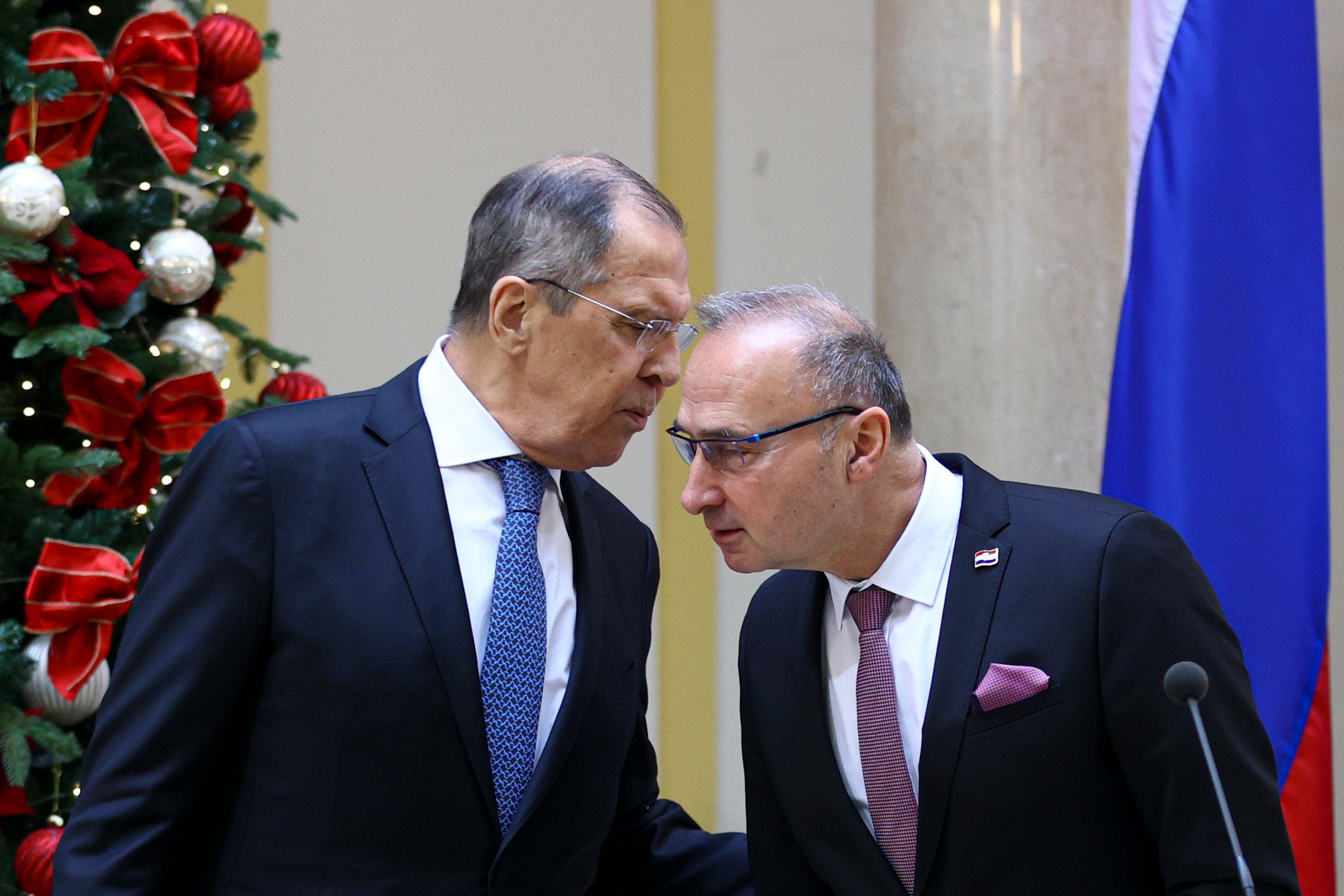Russian FM dismisses media reports about Navalny poisoning
Russia’s Foreign Minister Sergey Lavrov has brushed off media reports that there were several attempts to poison Kremlin critic Alexei Navalny and that Russia’s security forces might have orchestrated and carried out the poisoning

Russia's top diplomat on Wednesday brushed off media reports that there had been several attempts to poison Kremlin critic Alexei Navalny and that Russian security forces might have orchestrated and carried out the poisoning
Foreign Minister Sergey Lavrov said Moscow was “used to” Western countries airing accusations against Russia in the media.
“It’s amusing to read all this news, but the manner in which (it was) presented says only one thing: that our Western partners lack any ethical norms and any skills of normal diplomatic work, and (are unwilling) to be guided by international law norms when it’s about establishing facts,” Lavrov charged at a news conference after meeting with his Croatian counterpart in Zagreb, Croatia's capital.
Navalny fell ill on Aug. 20 during a domestic flight in Russia, and was flown in a coma to Germany for treatment two days later. Labs in Germany, France and Sweden, and tests by the Organization for the Prohibition of Chemical Weapons, established that Russia's opposition leader was exposed to a Soviet-era Novichok nerve agent.
Navalny and his allies have repeatedly accused the Kremlin of the poisoning, allegations officials have dismissed.
On Monday, the investigative group Bellingcat and Russian outlet The Insider released a report alleging that operatives from the FSB Russia's domestic security agency which is a top KGB successor, followed Navalny during his trips since 2017, had “specialized training in chemical weapons, chemistry and medicine” and ”were in the vicinity of the opposition activist in the days and hours of the time-range during which he was poisoned."
The investigation, conducted by Bellingcat and The Insider in cooperation with CNN and Der Spiegel, identified the supposed FSB operatives and poison laboratories after analyzing telephone metadata and flight information. It mentioned two instances in 2019 and 2020, in which Navalny or his wife Yulia suffered from unexplained symptoms.
“The case is solved. I know all of those who tried to kill me,” Navalny wrote in his blog shortly after the report was published.
The politician, who is convalescing in Germany, said his team was able to verify the findings, and once again accused President Vladimir Putin of being behind the poisoning.
“I have said before that the attempt to murder me is Putin's order. And now with all the (facts at hand) I state: FSB operatives were organizing a terrorist act on the orders of President Putin,” Navalny wrote.
Neither the FSB, nor the Kremlin has so far commented on the report.
Lavrov charged that the West has interpreted Moscow's refusal to issue a quick response to Western accusations regarding Navalny's case as a tacit acknowledgement of guilt.
“Any reasonable person would see such an approach as flawed,” he said.
Bookmark popover
Removed from bookmarks